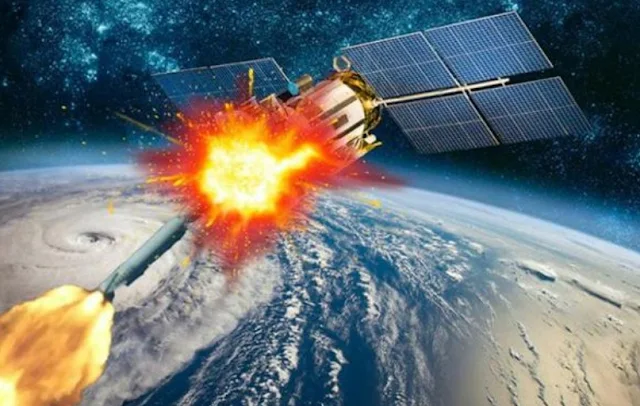 |
| Japan Stops Testing of Anti-Satellite Weapons (pict of illustration) |
Tokyo - The Japanese government decided to stop testing anti-satellite weapons. This was done to encourage discussion of responsible behavior in space. "This decision is the result of consideration by the Japanese Government following the announcement by the US Government not to conduct direct destructive anti-satellite missile (ASAT) tests in April," the Japanese Ministry of Foreign Affairs said in a statement. 2022).
The Japanese Ministry of Foreign Affairs stressed that Tokyo aims to actively promote discussion in the international community on the development of norms of responsible behavior in outer space. "At the same time, Japan will continue to play an active role in achieving a safe, stable and sustainable outer space," the Japanese Ministry of Foreign Affairs said in a statement.
Japan's move follows the United States where in early April Vice President Kamala Harris announced a decision to ban testing of anti-satellite weapons during a visit to Vandenberg Space Force Base in the state of California.
NASA Administrator Bill Nelson called on other countries to impose similar moratoriums on testing anti-satellite weapons. At that time, the former head of Roscosmos Dmitry Rogozin noted the inconsistency of the US administration and asked for an adequate response to the proposals of Russia and China regarding an agreement on preventing the placement of weapons in outer space.
China has previously accused the United States of trying to militarize outer space. The allegations come after the Pentagon issued a new policy document that considers outer space a "priority domain of national military power." Chinese Foreign Ministry spokesman Mao Ning accused Washington of blocking China and Russia-led space weapons control initiatives, and further exacerbating the trend of turning outer space into a weapon and a battlefield.
The accusations were made in response to a Pentagon directive issued in late August discussing the possibility of military operations in space. In addition to recognizing outer space as a priority domain of national military power, the new U.S. directive says the Pentagon must protect and defend the use of outer space for U.S. national security purposes, as well as provide advanced outer space capabilities to prevent conflict and, if deterrence fails, to resist and defeat aggression. .
